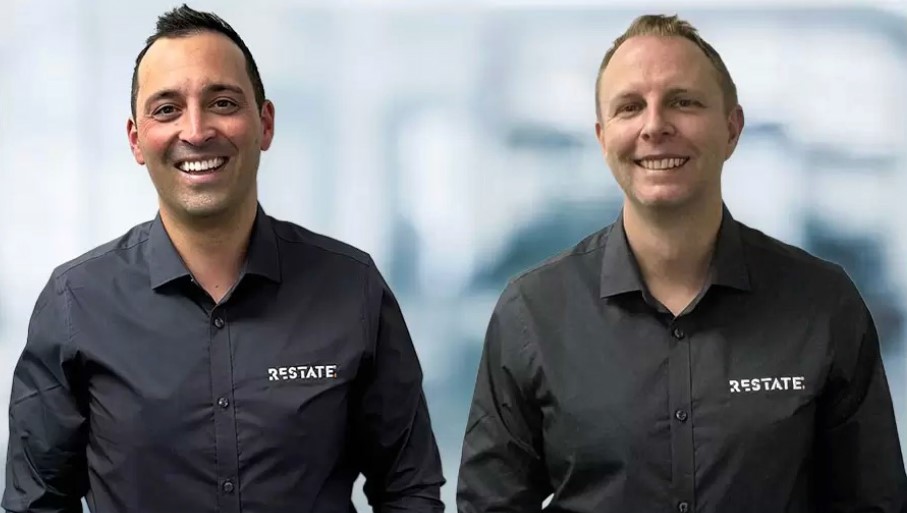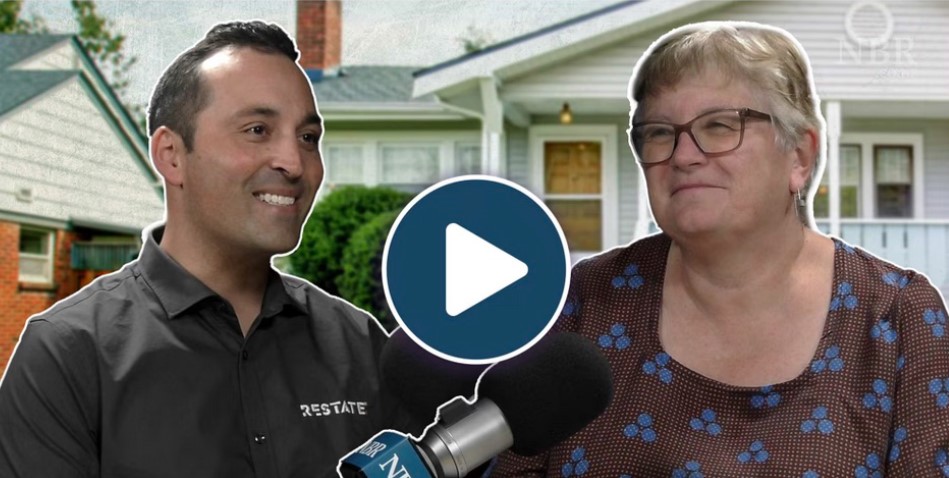Watch RESTATE CEO Tom Law speaks with Fiona Rotherham.
RESTATE'S Tom Law was recently featured in the NBR, talking to expanding through franchising with Fiona Rotherham.
When Tom Law moved back to New Zealand from Australia in 2016 and was living at his brother-in-law Leon Crane’s house, the two tradies noticed New Zealand had no property [restoration] specialty company as there was in other countries.
Law had seen the aftermath of flooding in Brisbane where he worked as an electrician.
While insurers would pay for new carpets or cleanup, often the properties he was working on had experienced damage that only became evident overtime.
Companies had then sprung up to specialise in damage assessment and property renovation, relating to natural disasters such as flooding and fire as well and mould, biohazards, and meth contamination.
Law said he’d been inspired to run his own company after working with other entrepreneurs.
“When | moved back | had a one-year-old child and not only was | going to move location, | was also going to change my career.”
When the pair set up RESTATE (formerly called Restoration Specialists until a rebrand in September), property damage response in New Zealand was dominated by carpet and industrial cleaners. There was a lack of a wider assessment on potential secondary damage incurred, Law said.
They talked to environmental consultants to get a sense of how large the demand for weather-related property damage could be and the response was that climate change would lead to a significant increase in weather events. That’s since played out with the recent flooding events around the country.
In March, the Insurance Council reported insurers had fully settled 91% of all private insurance claims from the Auckland Anniversary weekend flooding in early 2023 and Cyclone Gabrielle shortly after. By value, insurers had so far paid out $3.6 billion for both events.
“Those weather events have definitely helped business,” Law said. “Last year was quite buoyant in that space and a lot of the work ran right through to the start of 2024.”
There’s an average 20% year-on-year increase in insurance claims for damaged commercial and domestic property.
RESTATE’s annual revenue is now about $3.5 million, and it is profitable, with the founders having boot-strapped the business to date.
The average size of projects it works on is more than $5700 and one of the big advantages is that property restoration is recession proof – the services are required regardless of economic conditions.
“It’s got good margins, but we don’t want to leave it there,” Law said.
The franchising push
They work with the likes of property managers and body corporates and insurance companies, although often the initial phone call will come from a member of the public.
RESTATE works with some of the biggest names in the insurance industry including Vero, Tower, State, AMI, and AA but Law said it had been hard getting in with the bigger insurers, which wanted the company to have geographic spread.
“They want to be able to call one number and have somebody respond in an area that’s experiencing property damage. We are slowly making our way into some of these contracts,” Law said.
RESTATE has an Auckland office and has launched its first franchise in Hamilton with a former employee who wanted to set up down there. That franchisee is achieving an average 30% net profit.
It provided a good pilot case for becoming a franchisor, to get that geographic spread insurers are seeking, in a capital efficient way.
With help from a franchise consultant, they’re now selling others at $40,000 a pop for the upfront purchase fee. Other fees include a 15% monthly franchise royalty and initial equipment costs.
“Our initial calculation is that we could probably have up to 30 branches in New Zealand, varying in size. Whether we take it international is something we’ll think about later down the track,” Law said.
The initial target is to hit 20 franchises without the next three years.
“Once we get that geographic coverage, we’re going to have the ability to service more clients, more national clients, and just keep growing.”
They had to change the name of the company to become a franchisor, as they couldn’t trademark the previous name.

Lessons learnt
When asked what he’s learnt as a first-time entrepreneur so far, Law gave a heartfelt reply: “So much!”
“As much as we wanted to rush into things, taking our time was very important – testing our processes, testing our product, testing our services.”
Getting client feedback and doing something with it was crucial, he said, along with having a great team and getting good professional help.
“You can ask a lot of questions and not listen sometimes, but when you listen to people, you get the right information, the right data, and you can use that, to make really good, informed decisions.”
RESTATE wants national spread through franchising.
And Law recommended having a family member as a co-founder because you
know them so well.
“We’re like brothers. We have disagreements but we talk it out and everything’s good. I’m the dreamer, I’m the pie-in-the-sky guy, and come up with a lot of the ideas while he keeps me grounded. We sift through the ideas.”
Fiona Rotherham
Mon, 09 Dec 2024

